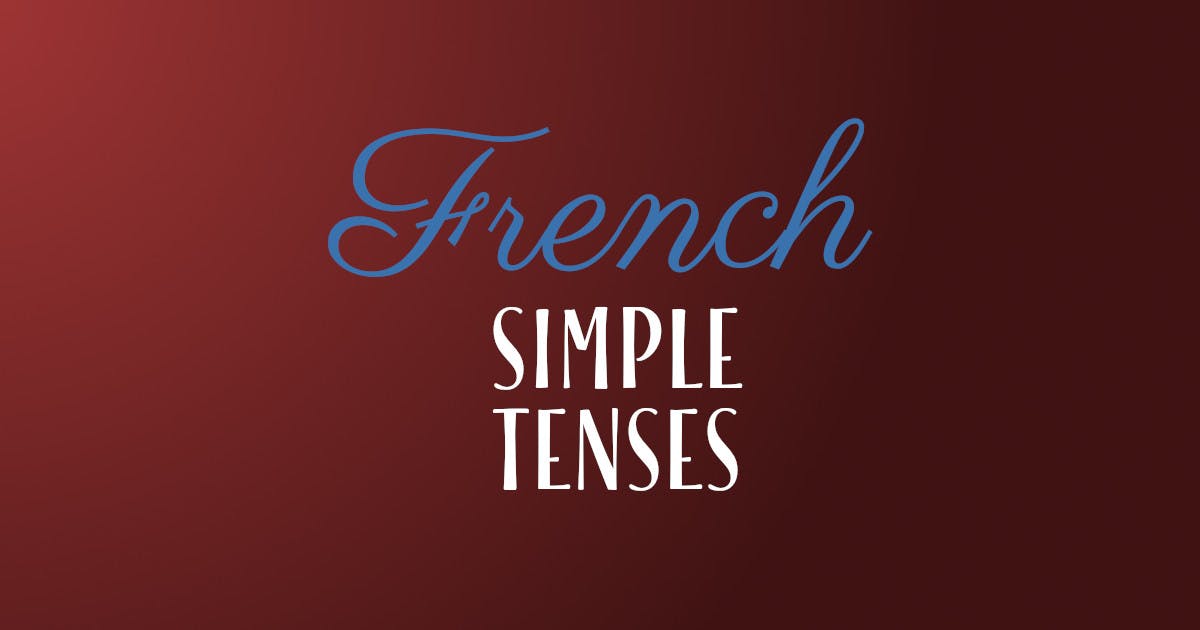How To Learn All Simple Verb Tenses In French
Present
Very much like in English (but with notable exceptions), the present tense in French is used to express the following:
- an action in progress (Je ne vois rien / I can't see anything)
- a current state (La voiture est bleue / The car is blue)
- an habitual action (À midi, je mange mon déjeuner / At noon, I eat my lunch)
- an event/action that began in the past but continues in the present (Le soleil se couche / The sun is setting). In this case, the French and English forms differ: in English, duration is expressed by the progressive form (ie is setting, is raining, is eating, etc…)
- a rule or a truth: the present used in this case means that the statement expressed by the sentence is considered to always be true (2 plus 2 égale 4 / 2 plus 2 equals 4)
More confusingly, the present tense in French can be used (and very often is) to suggest immediacy even when the action takes place in another time frame.
- future-based present: (Je t'appelle quand il arrive / I will call you when he arrives). The speaker places him/herself in the future time frame (quand il arrive/when he arrives), and delivers a statement in the present to enhance the forcefulness/”realness” of the action.
- past-based present: Like the above, use of the present in this case, is meant to suggest immediacy of action. The past can be close (Il part à l'instant pour Paris / He just left for Paris) or remote, in which case it is used to add liveliness to an historical account (En 1492, Colomb découvre l'Amérique/In 1492, Columbus discovers America).
Imparfait
The imperfect tense in French is used to express a past time frame with the following characteristics:
- it is known specifically;
- it is fully in the past (meaning it is not continuing into the present); and
- it lasted a while.
(Il était à londres / He was in London). Looking at this example, usage becomes clearer: the speaker knows that when “he” was in London, “he” was in London for a period of time, but “he” is in London no longer.
The imparfait tense is often used to indicate that something that was true in the past time frame is no longer true.
Passé Simple
Passé Simple has no equivalent in English. This is a a narrative tense used to indicate primacy and importance of actions in the past, as opposed to the more descriptive Imparfait. (Il mangea la pomme / He ate the apple). The action it describes is short and always completed. The Passé Simple is now uncommon in spoken French, where it is replaced by the Passé Composé, and is mostly used in literary works.
Futur Simple
The futur simple tense in French expresses a certain or near action in the future (J'irai à la plage/I will go to the beach).

SUBSCRIBE: